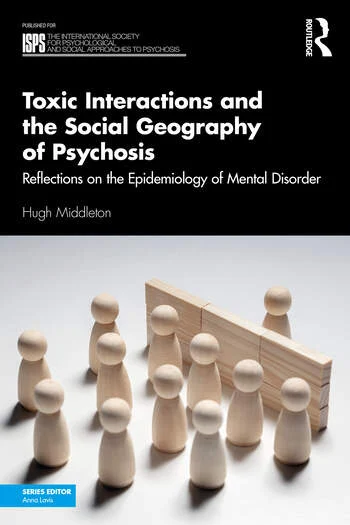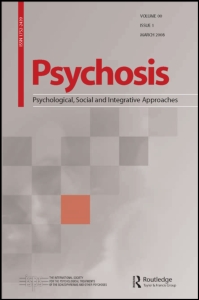Reflections on the 2006 conference in Hamar by Chris Burford
September 7, 2012 2012-09-07 16:37Reflections on the 2006 conference in Hamar by Chris Burford
I do not think it was just the snow on the ground, the beautiful setting, the melodious sound of Norwegian, and the gentle friendliness of the organisers and participants, but the recent conference of ISPS in Hamar seemed to me to show real signs of convergence for ISPS about the way ahead.
In an important and extensive opening contribution Ann-Louise Silver President of ISPS USA described ten principles of “insight-orientated psychotherapy for psychoses” which appeared to me to accept the merits of some modification of the traditional psychoanalytic approach. She also substantially questioned old psychiatric and psychoanalytic structures which may be a barrier to closer working with important allies in the “survivors’ movement”. Finally, in a personal contribution she gave an example of how it may help us to communicate with patients to be able to recognise that we have all been through a personal journey, not necessarily of personal illness, but certainly of personal vulnerability, and that this might be part of the reason why we are working in this field.
Richard Bentall, one of the leading UK researchers from a whole generation of evidence-based, client-centred psychologists, gave a valuable update on research developments since his impressive book “Madness Explained”. My impression was that further research is pointing in the direction of what at least might be called micro-dynamic psychological feedback systems e.g. around attributional styles. While not dynamic in the psychoanalytic sense, this atttibutional research increasingly seems to suggest an experience or mechanism of the self, mediating stressors with the environment of other people. The background scientific framework seemed to include evidence in support of attachment theory, which evidence-based psychoanalysts like Peter Fonagy have pursued. In his workshop Richard Bentall also very much emphasised questions of the quality of the therapeutic relationship between the therapist and the patient. He enlarged on new research on the psychoses of bipolar disorder which will be of interest to ISPS members both for content, and because once again it suggested that empirical research is pointing towards non-linear dynamic models of psychological subsystems. My impression was that if anything since the launch of his book two years ago, Richard Bentall is quietly even more confident that once suitably deconstructed into overlapping predisposing and self-maintaining psychological processes, schizophrenia will not exist as a separate scientific entity.
The following day, I had the personal advantage of translation from the Danish direct into English of the main ideas of Lars Thorgaard, from Denmark, by Jan Olav Johannessen. Clearly there has been close cross-fertililization facilitated by the close linguistic and geographical proximity. The presentation outlined a relations-based treatment of psychoses, particular valuable because it provides aflexible system for supporting front-line staff in working with patients. Again there was a grounding in concepts of attachment theory.
Jan Olav also translated the fluent presentation by Gerd-Ragna Bloch Thorsen of the extensive multi-family group approach to helping families help people with schizophrenia, now being used by 75 groups in Norway. While this had more of the flavour of psychosocial interventions, it clearly fitted comfortably with a relations-based individual therapeutic approach, attachment theory, and a stress vulnerability model, which several participants argued is easily accepted by patients and families as containing little stigma.
Although I missed Jan Olav’s own workshop on phase-specific treatment in psychosis, I was able to pick up a detailed print-out of PP slides, with important theoretical and clinical argumentation. My impression is that this “squares the circle”, or solves the riddle, that while we are championing the cause of better treatment for people with psychoses, it is important to accept that they are all unique, and may be at different phases of decompensation and recovery at different times.
At this conference my right hemisphere was well tended, as well as my left, especially by the beautiful singing. I am hopeful that some of the major participants will be able to share links on this ISPS-INT list to core parts of their presentations or related material. Lars Thorgaard for example has a chapter in English in the major book soon to be published by ISPS.
I do not wish to imply that no other strands are relevant to the world-wide project of ISPS, and perhaps I just noticed the snowy coincidence of the big financial conference in Davos, and our more modest one in Hamar. But I wanted to share the impression that we are on the move, and have coherent ways of addressing governmental advisers locally and globally.
Chris Burford
ISPS-INT Moderator and member of the ISPS UK executive board
February 2006



